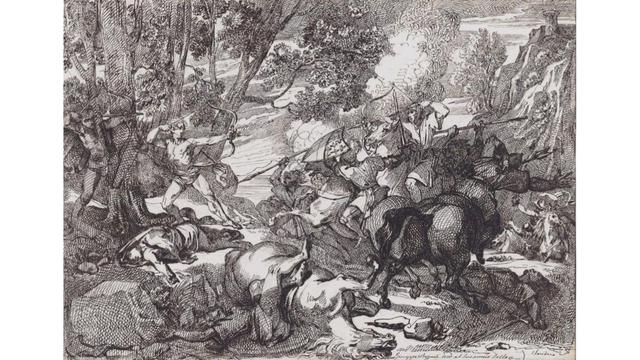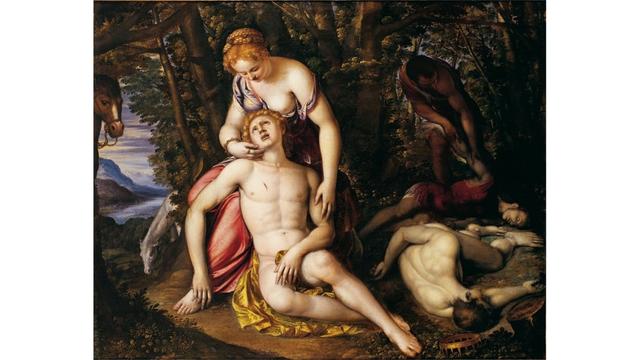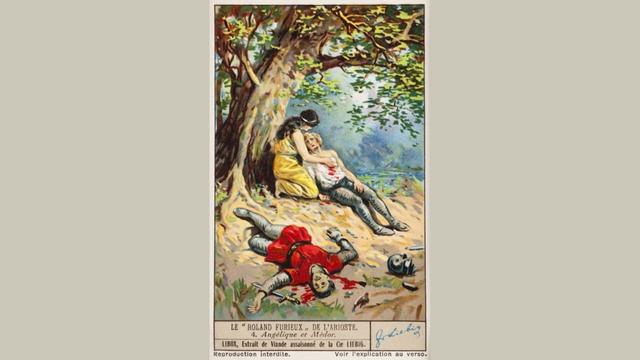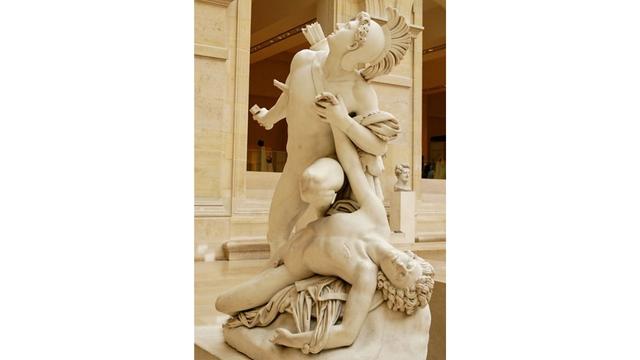Epic tales of friendship remind us of the importance of global networks of friends for solving the Tai Ji Men case
by Massimo Introvigne*
*Conclusions of the webinar “Friendship, Peace, and the Tai Ji Men Case,” co-organized by CESNUR and Human Rights Without Frontiers on July 30, 2022, United Nations International Day of Friendship.

As we celebrate the International Day of Friendship, we heard moving stories of friendship from Tai Ji Men dizi. We also had two papers about friendship by Marco Respinti and Stefania Cerruti. The first was about the spiritual component of friendship as a theoretical and philosophical matter. The second discussed a historical example of heroic friendship in a disaster situation.
To conclude with yet another, or perhaps two, such examples, I should first confess that I was a strange child. While most Italian children (not all) regarded the reading of Italian classics a boring duty in school, I fell in love with one of them, “The Frenzy of Orlando” (Orlando Furioso), a 16th-century epic poem by Ludovico Ariosto (1474–1533).
It is a bulky book and I believe students do not appreciate its magnificent beauty in school because they are proposed only parts of it. It was intended to be read from cover to cover. For this, you need time. I lived in the cold climate of Northern Italy, and every year I got a cold in winter and needed to stay home. I almost welcomed the colds, since each time I had to rest in bed I re-read the full “Frenzy of Orlando.”
I am mentioning this because the poem includes one of the most famous literary depiction of friendship. Orlando is the Italian name of Roland, the chief Christian warrior in Emperor Charlemagne of France’s fight against the Muslims. Orlando’s frenzy comes from his love for Angelica, the daughter of the Emperor of China who is visiting Charlemagne’s court (both Orlando and Angelica are not inventions of Ariosto, and appear in previous poems by other authors too). Ultimately, what drives Orlando crazy is that Angelica prefers to him a common Muslim soldier called Medoro, whom she finds almost dying and nurses back to health.

What happened to Medoro? After a battle the Muslims lost, he and his friend Cloridano went to the battlefield determined to recover the body of their killed king Dardanel. But they were spotted by the Christians and, while Cloridano managed to escape, Medoro was surrounded and was about to be killed. In the name of friendship Cloridano, while knowing he will be killed to, goes back to fight with Medoro. The Christians believe they have killed both, but in fact, while Cloridano is dead, Medoro is still alive and is rescued by Angelica, who knows the secrets of both Chinese and Indian medicine. Not only this, he ends up marrying the Chinese princess.
Ariosto comments that the story of Cloridano and Medoro “per esempio raro
di vero amore, è degna esser descritta” (as a rare example of true love is worthy of being told). This “true love” is in fact friendship, and any possible homoerotic implication is cast in doubt by the fact that, as soon as he sees Angelica, Medoro falls in love with her.

The story of Cloridano and Medoro is clearly derived from the account of Nisus and Euryalus’s death in the “Aeneid,” an epic poem written by the ancient Roman poet Virgil (70–19 BCE) a few decades before the birth of Jesus Christ. Virgil tried to create for the newly founded Roman Empire a mythical genealogy connected with the ancient civilization of Troy, well-known to the Romans through the epic poems attributed to the mysterious character known as Homer.
Euryalus and Nisus are inseparable friends and part of the band of Trojans who escape from Troy to Italy after the city’s destruction by the Greek, and will eventually create the Roman civilization as we know it. To do this, they should first defeat the pre-Roman inhabitants of Latium known as Rutuli. It is during a dangerous mission in enemy territory that the Rutuli pursue the two Trojans. Nisus realizes that they have surrounded Euryalus and, rather than saving himself, he goes back to die together with his friend.

In truth, within a cultural context different from Ariosto’s, a possible homoerotic element may be present in the story of Euryalus and Nisus, although Virgil clearly prefers to emphasize the universal value of friendship, which emerges through his whole work.
Both Ariosto and Virgil are among the main names in the history of world literature. While love is an eternal theme of poems and novels, readers are also attracted to the less common pages that have friendship at their center.
As the real-life incident in Stefania Cerruti’s paper, the literary stories I just mentioned confirm that friendship may have momentous consequences. The humble soldier Medoro marries a Chinese princess, and the sacrifice of Euryalus and Nisus inspire the Trojans to win and found what will become the great civilization of Rome.
These are epic poems, but there is an epic also in the story of Tai Ji Men. Fighting for more than twenty-five years, passing the torch of the battle for justice from generation to generation, resisting incredible pressure—if this is not a modern epic, then we don’t know what an epic is.

At the center of the Tai Ji Men epic we find, again, friendship. Dozens of testimonies from dizi in our webinars tell us incredible tales of friendship, which inspired them to fight together against all odds. Dozens of papers from scholars and human rights activists show how this friendship is expanding well beyond the dizi. Their marvelous friendship is contagious. As ancient epics tell us, friendship may be more powerful than weapons. The time of a global friendship finally solving the Tai Ji Men case has come.
Source: Bitter Winter

